The Origins Of The Apple Fruit
Apples are one of the most popular fruits in the world, but have you ever wondered about their origins? The apple fruit, scientifically known as Malus pumila, belongs to the Rosaceae family, which also includes pears, peaches, and cherries. The wild ancestor of the apple tree is believed to have originated in the region that now comprises Kazakhstan, Kyrgyzstan, and Western China, where it still grows today.
The cultivation of apples dates back to ancient times, with evidence of apple seeds and pollen found in archaeological digs in Switzerland and Denmark dating back to the Bronze Age. Apples were highly valued in ancient cultures such as those of Greece and Rome, where they were often used in religious rituals and offered to the gods as gifts.
- Interesting fact: Did you know that the story of Adam and Eve in the Bible involves an apple? However, it is important to note that the Bible does not specifically mention the fruit as an apple, and the notion that the fruit in the Garden of Eden was an apple may have resulted from a mistranslation of the Latin word “malus,” which means both “apple” and “evil.”
Over time, apples spread throughout the world, brought by traders and explorers. In the 1600s, European settlers in North America began planting apple trees, and the fruit soon became a staple of American diets. Today, there are thousands of different varieties of apples, each with its own unique flavor and texture.
| Common Apple Varieties | Description |
|---|---|
| Gala | Medium-sized, round, and yellow-orange with red stripes. Sweet and crisp. |
| Granny Smith | Large, round, and bright green. Tart and crisp. |
| Red Delicious | Medium to large, oblong, and deep red. Sweet but sometimes mealy. |
| Honeycrisp | Medium to large, round or oblong, and yellow-green with red streaks. Juicy and sweet with a firm texture. |
Overall, the origins of the apple fruit are rich in history and culture, and its journey from a wild tree in Central Asia to households around the world is a testament to the human fascination with this delicious and nutritious fruit.
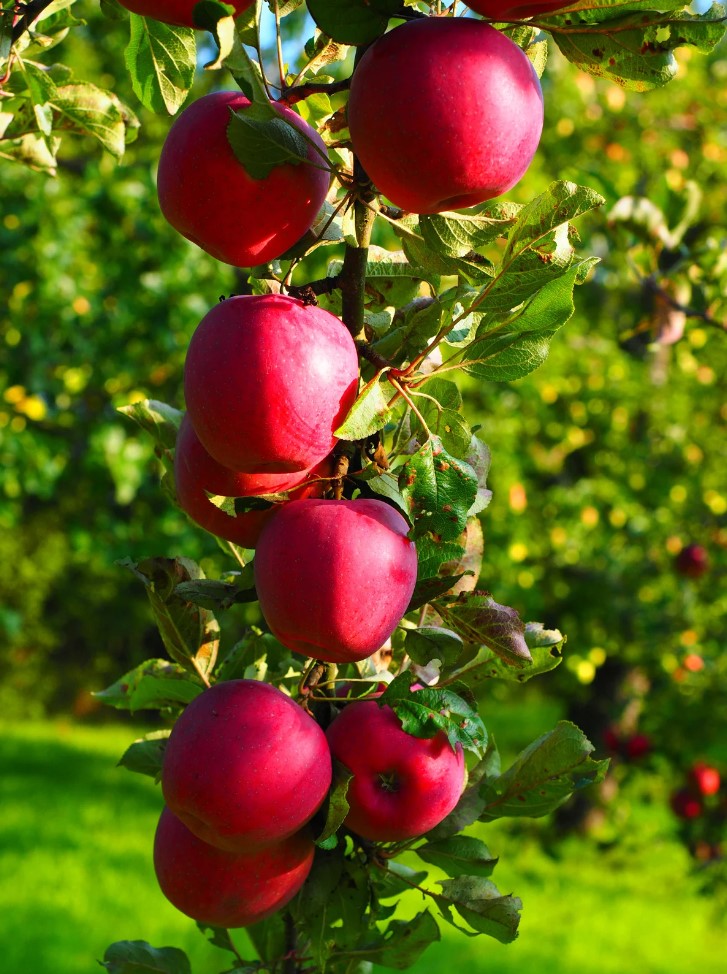
The Anatomy Of An Apple
Apples are one of the most popular fruits worldwide. With its sweet, juicy and crunchy texture, it’s no wonder why it’s become a favourite among many. But have you ever wondered what exactly an apple is made up of? In this blog post, we’ll be taking a closer look at the anatomy of an apple.
Firstly, let’s start with the skin. The apple skin is made up of multiple layers. The outermost layer is called the cuticle, which helps to protect the apple from water loss through evaporation. Beneath the cuticle layer is the epidermis. This layer contains pigments called anthocyanins, which give apples their red, green and yellow colours.
Now let’s move onto the flesh of the apple. The flesh is made up of three main parts – the mesocarp, the endocarp and the core. The mesocarp is the fleshy part of the apple that we eat. It contains a lot of water, which gives the apple its juicy texture. The endocarp is the part of the apple that surrounds the seeds. It’s usually not eaten as it’s quite tough and fibrous. Finally, the core of the apple contains the seeds and is usually discarded.
- Did you know? The mesocarp of an apple can contain up to 90% water!
Now let’s move onto the seeds. The seeds of an apple are contained within the endocarp layer. Each apple typically contains between 5-10 seeds. These seeds contain a small amount of cyanide, which is why it’s not recommended to eat too many apple seeds.
| Apple Anatomy | Description |
|---|---|
| Cuticle | Outermost layer of the apple skin, helps to reduce water loss |
| Epidermis | Contains pigments called anthocyanins, gives the apple its colour |
| Mesocarp | Fleshy part of the apple that’s eaten, contains a lot of water |
| Endocarp | Part of the apple that surrounds the seeds, usually not eaten |
| Core | Contains the seeds of the apple |
Overall, the anatomy of an apple is quite complex. From its skin to its seeds, each part of the apple has a distinct role to play. Next time you’re biting into an apple, take a moment to appreciate the intricate structure of this delicious fruit!
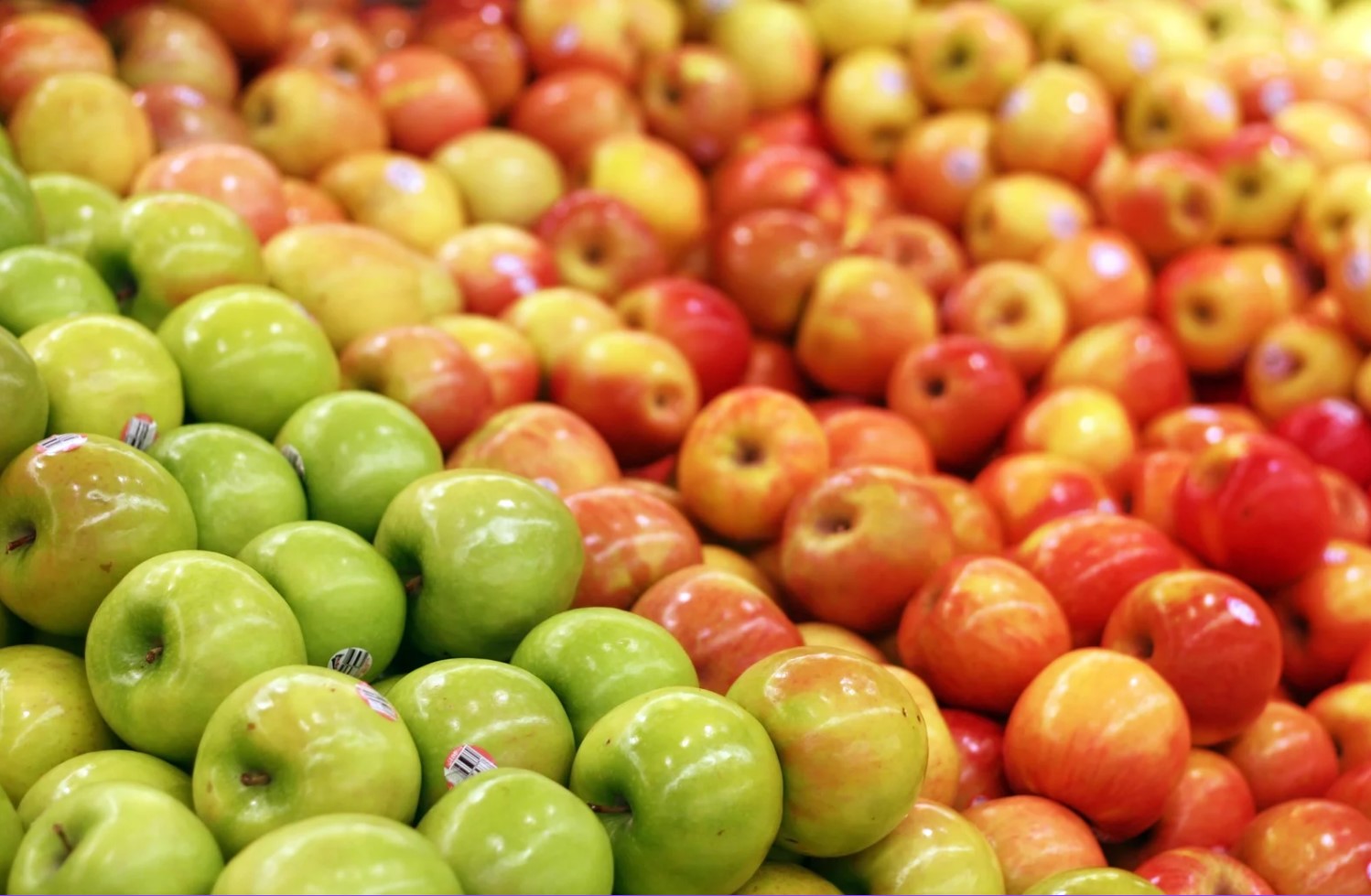
The Nutritional Value Of Apples
Apples have a long history of being a beloved fruit for many reasons. Besides the great taste, they are also a highly nutritious food. Apples are a great source of dietary fiber, with one medium apple containing about 4 grams of it. The fiber in apples can help regulate digestion and promote feelings of fullness, making it a fantastic addition to your diet.
Besides fiber, apples are also a great source of vitamin C, an essential nutrient that plays a crucial role in immune function. Vitamin C is also an antioxidant that helps neutralize harmful free radicals in the body. In addition, apples are rich in potassium, a mineral that helps regulate blood pressure and supports heart health.
- One medium apple with skin contains
- 95 calories
- 25 grams of carbohydrates
- 4 grams of fiber
- 19 grams of sugar
- 1 gram of protein
Furthermore, apples contain a variety of other nutrients such as vitamin K, vitamin B6, and manganese. They are also low in calories, making them a great snack option for those looking to maintain or lose weight. Whether you eat them raw, cook them, or turn them into juice, apples provide a wealth of nutritional benefits.
Incorporating apples into your diet is easy. You can slice them up and eat them on their own, or pair them with some nut butter for a tasty snack. Apples also work well in salads, smoothies, and baked dishes. There are plenty of delicious ways to enjoy this versatile fruit.
In conclusion, apples are a highly nutritious food that offer a variety of health benefits. Whether you are looking to improve your digestion, support your immune system, or maintain a healthy heart, incorporating apples into your diet is a great way to do so. So next time you are at the grocery store, be sure to grab a few to add to your shopping cart!
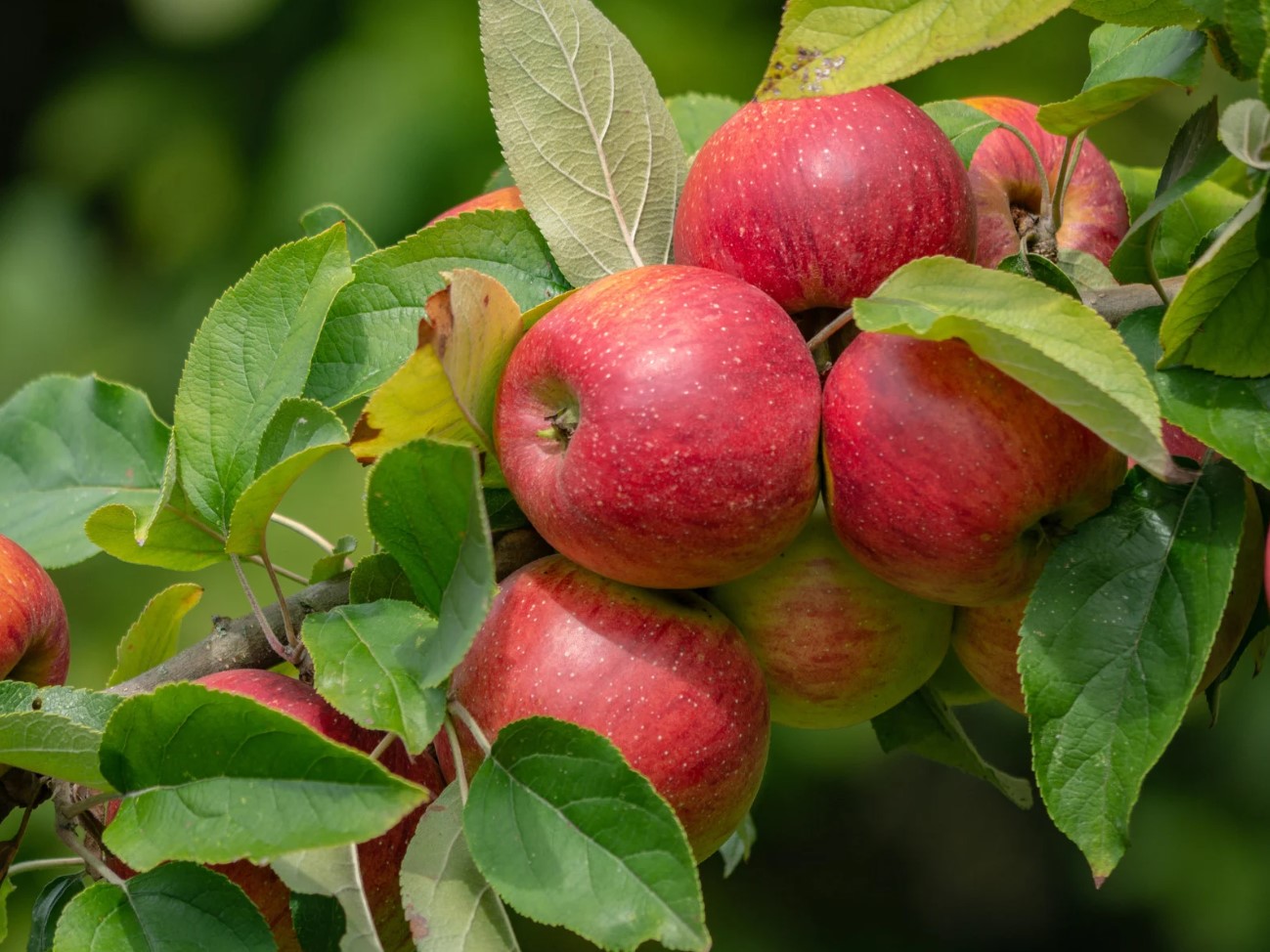
The Medicinal Benefits Of Apples
Apples are known not only for their sweet and crunchy taste, but also for their nutritional and medicinal value. They are low in calories and high in fiber which help in reducing the risk of chronic diseases. Additionally, apples contain various important vitamins and minerals like potassium, vitamin C and folate. But did you know that apples also have medicinal benefits?
One of the most important medicinal properties of apples is their ability to boost our immune system. Apples are rich in antioxidants like flavonoids and polyphenols, which help in reducing the risk of various diseases. These antioxidants also help in preventing oxidative stress, which can lead to various health problems like heart disease and cancer.
Apples also contain pectin, a soluble fiber that helps in regulating our digestive system. Pectin can also help in reducing cholesterol levels, which in turn can lower the risk of heart disease. Additionally, the consumption of apples can also help in preventing constipation and stomach disorders.
Not just that, apples are also known to be beneficial for our respiratory health. Quercetin, a flavonoid found in apples, can help in reducing the inflammation in the airways, which can benefit people with respiratory issues like asthma.
In addition, apples are also good for our brain health. They contain important antioxidants that can help in reducing the risk of cognitive decline. In fact, one study found that people who consumed apples on a regular basis had a reduced risk of developing Alzheimer’s disease.
In conclusion, apples are not just a tasty and satisfying snack, but also have numerous medicinal benefits. From improving our immune system and digestive health to reducing the risk of chronic diseases, the importance of including apples in our daily diet cannot be overstated. So, grab an apple today and enjoy its sweet and healthy goodness!
The Role Of Apples İn Weight Loss
Apples have been known as a health food for centuries. They are packed with nutrients, antioxidants and fiber which makes them a perfect addition to any diet. In fact, research has shown that apples may even help with weight loss.
One of the reasons why apples are good for weight loss is because they are low in calories. A medium-sized apple contains approximately 95 calories, which is much less than a candy bar or a bag of chips. Eating an apple as a snack can help you feel full and satisfied between meals, without adding too many calories to your diet.
- Another way that apples can help with weight loss is by increasing your fiber intake. Apples are a great source of soluble fiber, which can help regulate your digestion and lower your cholesterol levels. Soluble fiber also helps you feel full, which can prevent you from overeating at mealtimes.
- Apples are also a low glycemic index food. This means that they release sugar into your bloodstream slowly, which can prevent spikes in your blood sugar levels that can lead to cravings and overeating. Eating low glycemic index foods like apples can reduce your risk for type 2 diabetes and promote overall better health.
Overall, incorporating apples into your diet can be a great way to aid in weight loss. They are low in calories, high in fiber, and have a low glycemic index. Eating apples as a snack, or incorporating them into your meals, can help you reach your weight loss goals and improve your overall health.
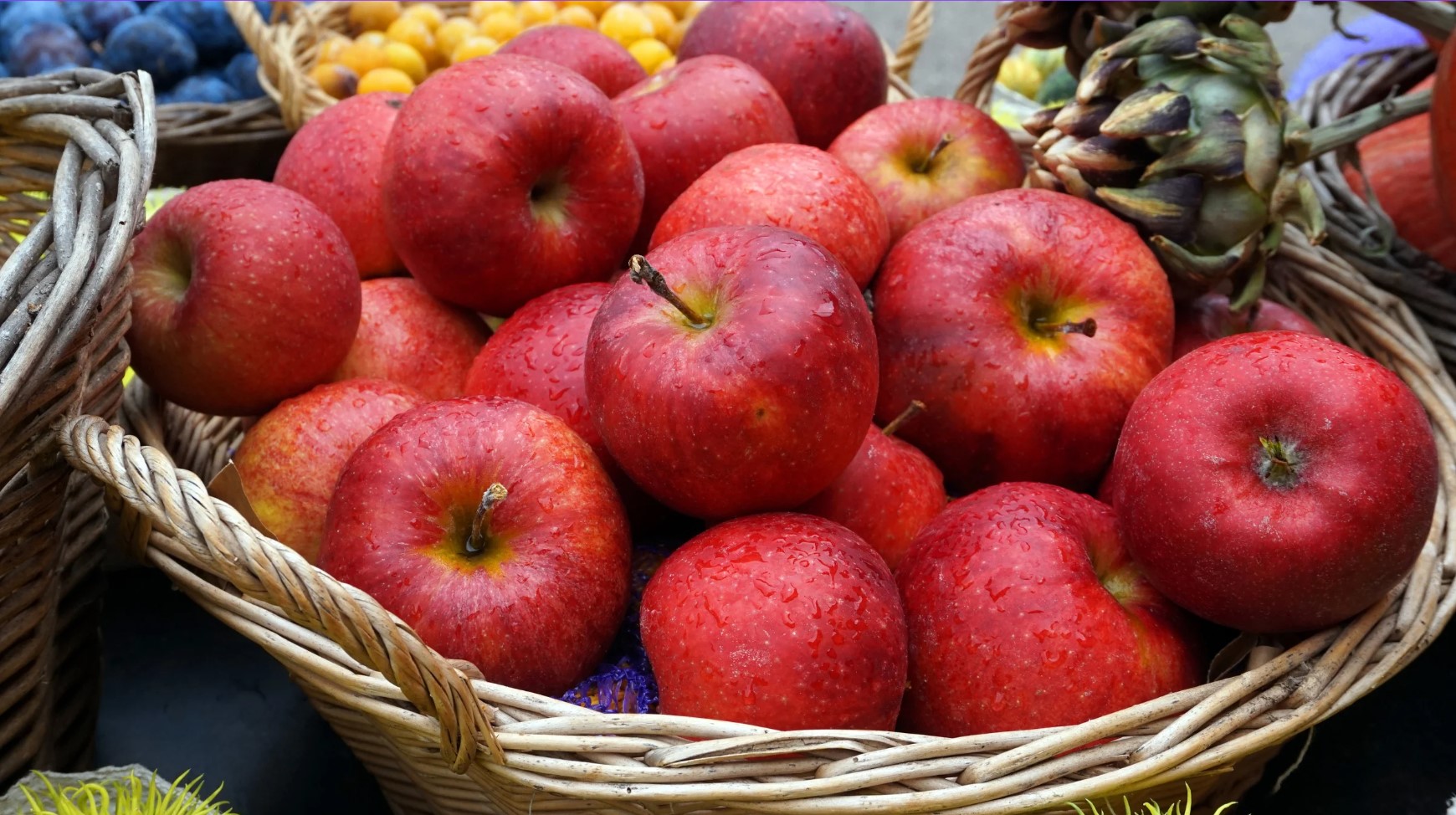
The Benefits Of Apples For Heart Health
Apples are one of the most popular fruits in the world. They are not only tasty but also packed with nutrients that can benefit our health in numerous ways. When it comes to heart health, apples have been shown to have many benefits.
Firstly, apples are rich in fiber. A medium-sized apple contains about 4 grams of fiber, which is 17% of the recommended daily intake. Fiber has been linked to a lower risk of heart disease. It can help lower blood pressure, reduce cholesterol levels and improve overall heart health.
- Apples also contain antioxidants like flavonoids and polyphenols. These compounds can help prevent the oxidation of LDL cholesterol, which is a risk factor for heart disease. By reducing LDL oxidation, apples can protect against the development of atherosclerosis, a condition in which the arteries become narrow and stiff due to the buildup of plaque.
- The polyphenols in apples can also help improve endothelial function, which is the ability of the blood vessels to dilate properly. By improving endothelial function, apples can help lower blood pressure and reduce the risk of heart disease.
Another way apples benefit heart health is by reducing inflammation. Chronic inflammation is a key driver of many chronic diseases, including heart disease. Apples contain anti-inflammatory compounds that can help reduce inflammation in the body and protect against the development of heart disease.
- Finally, apples are a low-calorie and nutrient-dense food. They can help you maintain a healthy weight, which is important for heart health. Being overweight or obese is a risk factor for heart disease, and eating apples can be a helpful strategy for weight loss or weight maintenance.
In conclusion, apples are a delicious and nutritious fruit that can provide numerous benefits for heart health. Whether eaten fresh or cooked, apples are a great addition to any diet. Incorporating apples into your regular diet can help keep your heart healthy and reduce your risk of heart disease.
The Effects Of Apples On Gut Health
Apples are a delicious and nutritious fruit that come in many varieties. But did you know that eating apples can have positive effects on your gut health? The gut, also known as the digestive system, is responsible for breaking down food and absorbing nutrients. Poor gut health can lead to a variety of problems, such as bloating, constipation, and even depression. Luckily, regular consumption of apples may help improve the health of your gut.
One way apples can improve gut health is by providing fiber. Fiber is important for digestion, as it helps move food through the gut and promotes regular bowel movements. Apples are a good source of both soluble and insoluble fiber, which work together to support gut health. Soluble fiber can help feed the beneficial bacteria in the gut, while insoluble fiber adds bulk to stools and promotes regularity.
- Another way apples can improve gut health is by acting as a prebiotic. Prebiotics are non-digestible carbohydrates that can feed the good bacteria in the gut. Apples contain a type of prebiotic fiber called pectin, which has been shown to increase the number of beneficial bacteria in the gut. This can lead to better overall gut health and a stronger immune system.
- In addition to fiber and prebiotics, apples also contain polyphenols. Polyphenols are plant compounds that have antioxidant and anti-inflammatory properties. Research has shown that polyphenols in apples can help reduce inflammation in the gut and improve digestion.
Overall, incorporating apples into your diet can have positive effects on your gut health. When selecting apples at the grocery store, look for firm, unbruised apples with smooth skin. Store them in the refrigerator to extend their shelf life. And don’t be afraid to get creative with how you incorporate apples into your meals- try adding slices to a salad or smoothie, baking them with cinnamon for a healthy dessert, or simply eating them as a snack.
| Benefits of apples for gut health: |
|---|
| Provides fiber |
| Acts as a prebiotic |
| Contains polyphenols |

The Potential Benefits Of Apple Extracts
Apples are one of the most commonly eaten fruits in the world. They are not only delicious, but also packed with nutrients that are essential for maintaining good health. Apple extracts are a concentrated form of the fruit that can be used to reap the many benefits of apples in a more potent form.
One potential benefit of apple extracts is their ability to improve cognitive function. Studies have shown that the antioxidants found in apples can help protect the brain from oxidative stress, which can lead to cognitive decline. Apple extracts have also been found to improve memory and learning in animal studies.
Another benefit of apple extracts is their potential role in cancer prevention. Apples are rich in compounds called polyphenols, which have been shown to have anti-cancer properties. In one study, apple extracts were found to inhibit the growth of cancer cells in the colon, breast, and liver.
In addition to their anti-cancer properties, apple extracts have also been found to have anti-inflammatory effects. Chronic inflammation is linked to the development of many chronic diseases, including heart disease, diabetes, and obesity. By reducing inflammation in the body, apple extracts may help protect against these conditions.
- Improved cognitive function
- Potential role in cancer prevention
- Anti-inflammatory effects
| Compound | Potential Health Benefit |
|---|---|
| Quercetin | Reduced risk of heart disease |
| Chlorogenic acid | Lower blood sugar levels |
| Catechins | Improved cognitive function |
Overall, apple extracts offer a concentrated source of the many health benefits of apples. While they may not be a substitute for eating whole apples, they can be a useful addition to a healthy diet.
The İmpact Of Apples On Diabetes Management
Apples can have a significant impact on diabetes management, thanks to their high nutritional value and low glycemic index. A glycemic index is a scale that measures how quickly the carbohydrates in food raise your blood sugar levels. Foods with a high glycemic index cause a rapid spike in blood sugar, which can be problematic for people with diabetes. However, the low glycemic index of apples means that they can be a healthy addition to a diabetic diet.
In addition to their low glycemic index, apples are also high in fiber, which can help regulate blood sugar levels. Soluble fiber in particular can slow down the absorption of glucose, which can help prevent spikes in blood sugar after meals. Apples also contain antioxidants, which can help reduce inflammation and protect against cell damage. This can be especially beneficial for people with diabetes, as they are at a higher risk for chronic inflammation and oxidative stress.
- One study found that eating apples regularly was associated with a lower risk of type 2 diabetes.
- Another study found that supplementing with apple extract improved insulin sensitivity in overweight adults with prediabetes.
However, it’s important to note that apples, like all fruits, still contain carbohydrates and can affect blood sugar levels if consumed in large quantities. It’s best to consume apples in moderation as part of a balanced, diabetic-friendly diet. This can include pairing apples with protein or healthy fats to help slow down the absorption of carbohydrates, such as apple slices with almond butter or a small apple with a handful of nuts.
| Benefits of Apples for Diabetes Management | |
|---|---|
| Low glycemic index helps regulate blood sugar levels | High in fiber, which can slow down glucose absorption |
| Contain antioxidants, which can protect against inflammation and cell damage | May lower the risk of developing type 2 diabetes |
In conclusion, apples can be a healthy addition to a diabetic diet, thanks to their low glycemic index, high fiber content, and antioxidant properties. However, it’s important to consume them in moderation as part of a balanced diet and to pair with other healthy foods to slow down glucose absorption. With the right approach, apples can have a positive impact on diabetes management and contribute to overall health and wellness.
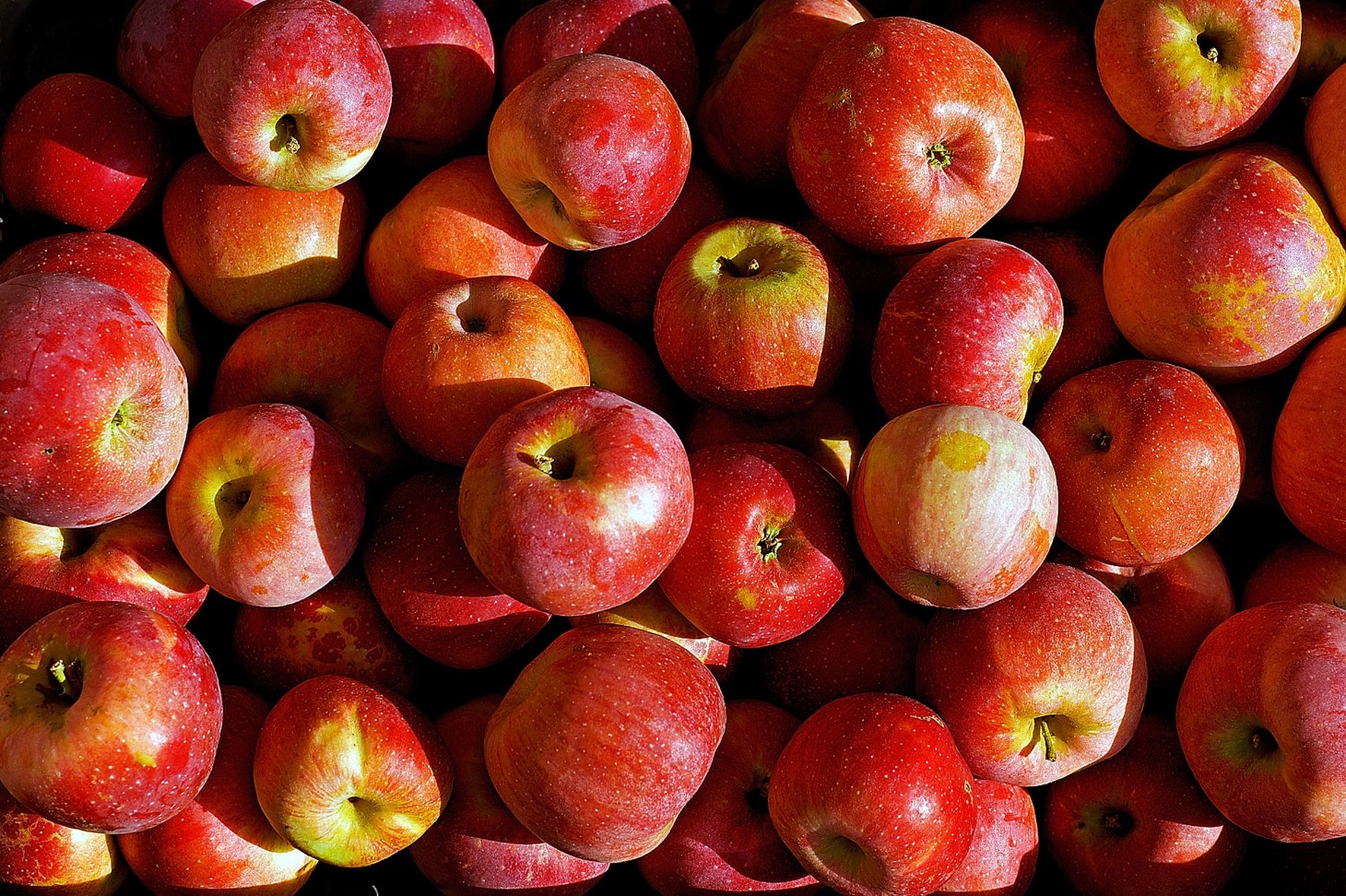
Apples As A Cancer-fighting Food
Apples are a popular and well-loved fruit, and for good reason. They are not only delicious, but they also have many health benefits. One of the most impressive benefits is their potential role in fighting cancer. Many studies have been conducted to examine the relationship between apples and cancer, and the results are promising.
First of all, apples are rich in antioxidants. Antioxidants are substances that protect the body from damage caused by free radicals, which are harmful molecules that can cause cancer. The antioxidants in apples include quercetin, catechin, phloridzin, and chlorogenic acid. These substances can help prevent oxidative damage to cells and reduce inflammation, both of which can contribute to the development of cancer.
In addition to antioxidants, apples also contain other compounds that may have anti-cancer properties. For example, apples are high in fiber, which can help regulate digestion and prevent colon cancer. They also contain flavonoids, which have been shown to inhibit the growth of cancer cells.
Several studies have found a link between apple consumption and a reduced risk of certain types of cancer. For example, one study found that women who ate at least one apple a day had a lower risk of developing breast cancer compared to those who didn’t eat apples. Another study found that men who ate at least one apple a day had a lower risk of developing pancreatic cancer.
- Incorporating apples into your diet
If you want to take advantage of the potential cancer-fighting benefits of apples, there are many ways to incorporate them into your diet. Here are a few ideas:
- Add sliced apples to your yogurt or cereal in the morning for a healthy breakfast
- Snack on apple slices with peanut butter or hummus for a satisfying mid-day snack
- Chop up apples and add them to a salad for a crunchy and nutritious lunch
- Bake apples with cinnamon and a drizzle of honey for a healthy dessert
When selecting apples at the grocery store, it’s best to choose organic varieties whenever possible. Apples are one of the most heavily sprayed crops, so choosing organic can help reduce your exposure to harmful pesticides. Store your apples in the refrigerator to keep them fresh for longer.
In conclusion, apples are not only a delicious and nutritious fruit, but they also have potential cancer-fighting properties. By incorporating apples into your diet, you can help reduce your risk of developing certain types of cancer. So next time you’re at the grocery store, be sure to pick up some apples and enjoy them as part of a healthy lifestyle.
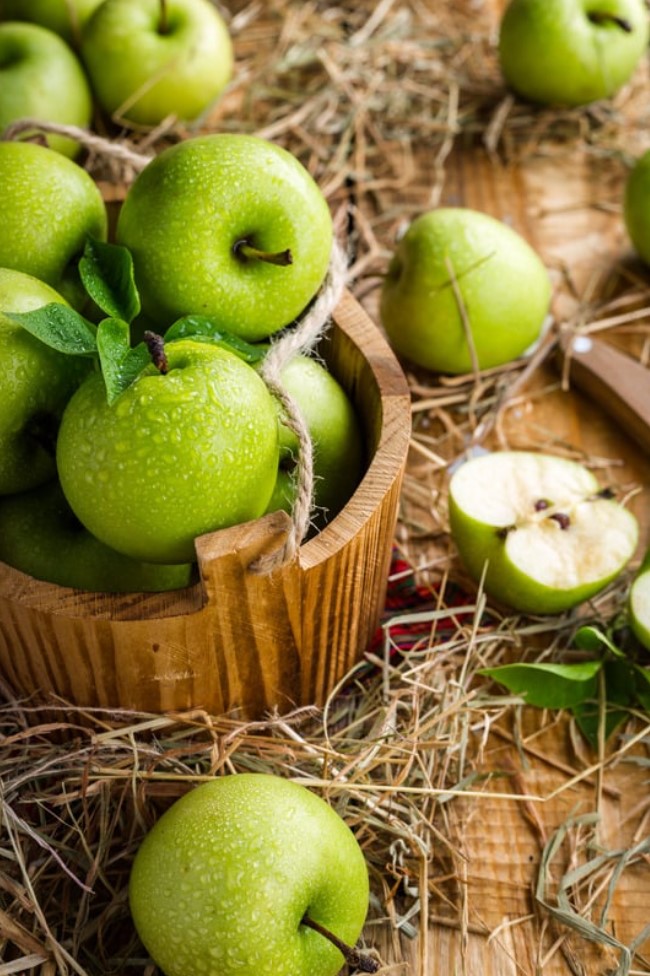
The Advantages Of Consuming Whole Apples
Apples are one of the most widely consumed fruits in the world, and for good reason. Not only are they delicious, but they also offer a wide range of health benefits. One of the biggest advantages of consuming whole apples is that they are packed with fiber. A single medium-sized apple contains about 4 grams of fiber, which is 16% of the daily recommended intake for adults.
In addition to fiber, apples are also a good source of various vitamins and minerals. For example, they are high in vitamin C, which is important for maintaining a healthy immune system. They also contain significant amounts of potassium, which is essential for heart health.
- Apples are a great food for weight loss.
- The fiber in apples fills you up and keeps you feeling full longer, which can help you eat less and lose weight.
- Studies have shown that eating apples can reduce the risk of certain types of cancer.
Another advantage of consuming whole apples is that they are low in calories. A medium-sized apple contains only about 95 calories, making it a great option for snacks and desserts.
| Benefits of consuming whole apples | |
|---|---|
| High in fiber | Helps with digestion and feeling full |
| Good source of vitamins and minerals | Promotes overall health and wellness |
| Low in calories | Great for weight management |
Overall, consuming whole apples is a simple and delicious way to improve your health. Whether you eat them as a snack or incorporate them into your meals, adding more apples to your diet can have numerous benefits.
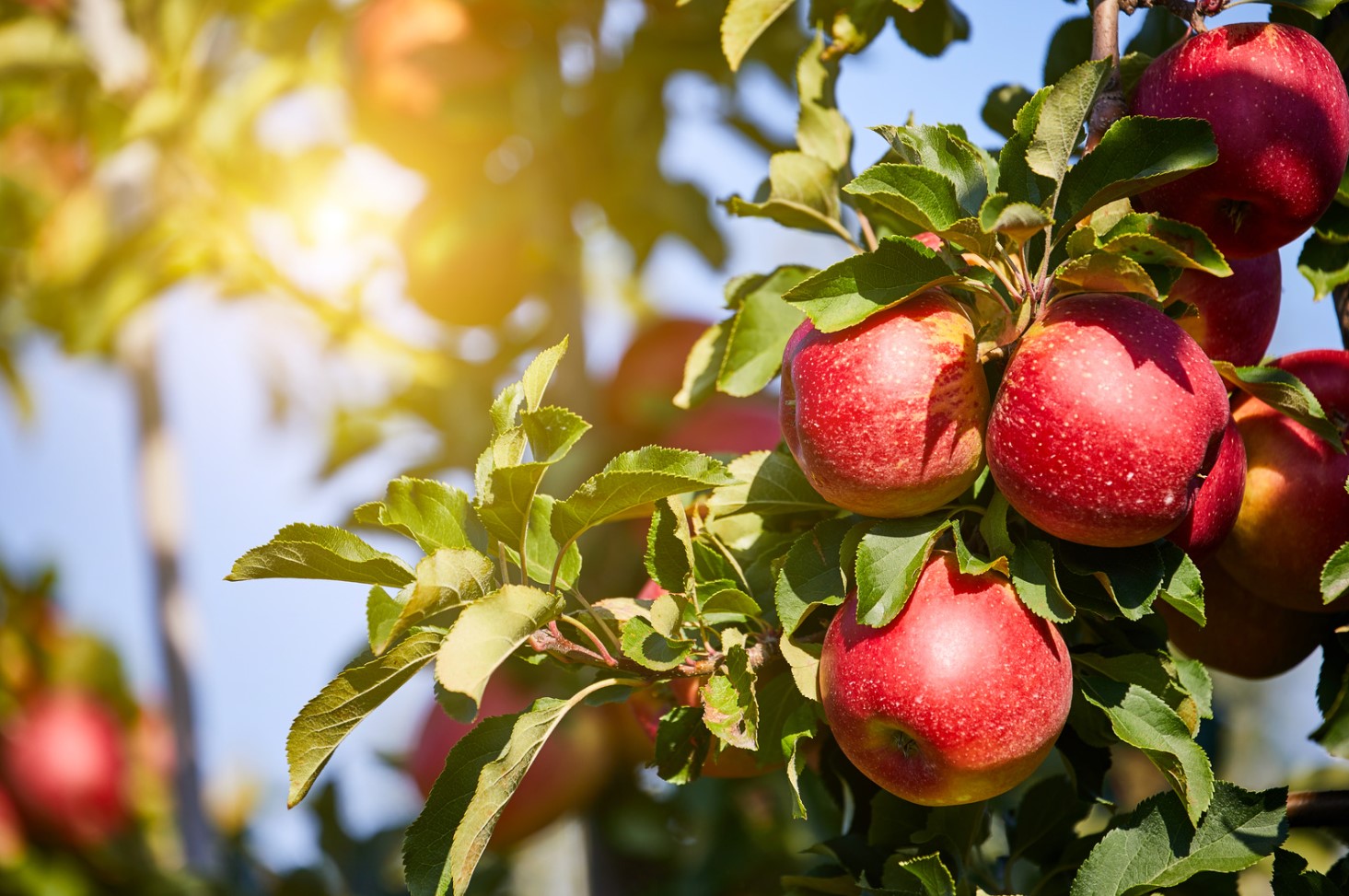
Different Ways To İncorporate Apples İnto Your Diet
Apples are known for being a nutritious and delicious fruit that can be enjoyed in a variety of ways. Incorporating apples into your diet is a great way to add natural sweetness and fiber to your meals while also benefiting from the various health benefits that apples have to offer.
One simple way to incorporate apples into your diet is to enjoy them as a snack on their own. Apples are a great option for a mid-day or after-workout snack, providing natural energy and sustenance. You can also pair apples with various dips or toppings, such as peanut butter or cinnamon, to add flavor and nutrition to your snack.
- Another way to incorporate apples into your diet is by adding them to your breakfast. You can slice apples and add them to your oatmeal or yogurt, or even bake them into a healthy muffin or bread recipe for a tasty and wholesome breakfast option.
- Apples can also be used in various savory dishes, such as a salad or sandwich. Adding sliced or diced apples to a turkey or chicken sandwich can add a crisp and refreshing element, while adding apples to a spinach salad can add a touch of sweetness to balance out the greens.
If you’re looking for a more creative way to incorporate apples into your diet, you can try using apples as a substitute for other ingredients in recipes. For example, you can use applesauce or grated apples as a substitute for oil or butter in baking recipes, or even use apples as a natural sweetener in a smoothie or juice recipe.
| Ways to Incorporate Apples into Your Diet: |
|---|
| Snack on apples alone or with dips |
| Add apples to breakfast options like oatmeal or baked goods |
| Incorporate apples into savory dishes like salads or sandwiches |
| Use apples as a substitute for oil, butter or sugar in recipes |
Overall, incorporating apples into your diet can be a simple and delicious way to boost your overall nutrition and health. With so many ways to enjoy apples, there’s no reason not to add this versatile fruit to your daily routine.
How To Select The Best Apples At The Grocery Store
Apples have always been one of the most popular fruits, both for their taste and for their health benefits. But with so many different types of apples available at grocery stores, it can be difficult to know which ones to choose. Here are some tips to help you select the best apples at the grocery store.
- Choose apples that are firm and have smooth, shiny skin.
- Avoid apples that have bruises or soft spots, as they may spoil quickly.
- Check the stem area of the apple – if it is brown or shriveled, the apple may be overripe.
- Smell the apple – if it has a fresh, fruity scent, it is likely to be ripe and delicious.
When choosing between different types of apples, keep in mind that some are better for eating raw, while others are better for baking or cooking. Here are some of the most common types of apples and their uses:
| Type of Apple | Best Uses |
|---|---|
| Gala | Eating raw, salads |
| Granny Smith | Baking, cooking, making pies |
| Honeycrisp | Eating raw, snacks |
| Red Delicious | Eating raw, snacks |
Lastly, consider the source of your apples. Organic apples are typically grown without pesticides and are better for the environment. Local apples may also be fresher and have a smaller carbon footprint due to transportation. But ultimately, the best apples are the ones that taste good and make you happy!
How To Store Apples For Maximum Freshness
Apples are undoubtedly one of the most loved fruits globally. Whether you prefer to have them in your salads, pies, or as a healthy snack, there’s no denying that apples are full of health benefits. Not only that, they are also a versatile fruit that goes well with both sweet and savory dishes. However, one of the issues that many people face when buying apples is how to store them correctly to maintain their freshness. In this post, we’ll be discussing the best ways to store apples to ensure maximum freshness.
Firstly, it’s important to note that the ideal spot to store your apples is in a cool and dry place. This could be your refrigerator or pantry, depending on the storage space available. Make sure to store them separately from other fruits and veggies to prevent them from spoiling since apples release ethylene gas.
- For short-term storage, storing your apples in the refrigerator is the best option. Make sure to store the whole apples in a plastic bag or in a sealed container to prevent moisture from spoiling them.
- For long-term storage, the best option is to store your apples in a cool, dark place like a basement or cellar. Make sure to keep them in a ventilated container or crate, and cover them with a damp towel to keep them moist.
| Types of Apples | Storage Time |
|---|---|
| Gala, Honeycrisp, Pink Lady, Granny Smith | 1-2 months |
| Red Delicious, Golden Delicious, Braeburn | 2-3 months |
| Fuji, Rome | 3-4 months |
| Jonagold | 4-5 months |
Lastly, as apples continue to ripen even after they’ve been picked, it’s important to check your apples periodically to prevent any spoiled ones from spoiling the rest. It’s also best to avoid washing your apples until just before you’re ready to consume them since moisture can speed up the ripening process, and remember, always choose fresh, firm apples to start with.
By following these simple steps, you can keep your apples fresh for an extended period, making it easy to enjoy this delicious fruit anytime you like. So the next time you pick up a batch of apples from the grocery store or local farmers’ market, be sure to try these storage tips and savor the crispness of perfectly stored apples!
The Ecological İmpact Of Apple Farming
When it comes to discussing the ecological impact of apple farming, several factors come into play. Apple farming is one of the largest industries in the world and the demand for this fruit continues to grow. However, the way apples are farmed can have a significant impact on the environment, including soil health, water usage, and pesticide exposure.
The primary method of apple farming is conventional farming, which involves the use of chemical pesticides and fertilizers. This can lead to pollution in soil and water sources, which can negatively impact both the environment and human health. Moreover, the chemicals used in conventional farming can also have devastating effects on bees and other pollinators, leading to a decrease in biodiversity.
- Organic Apple Farming: One solution to this ecological problem is organic apple farming. Organic apple farming eliminates the use of synthetic pesticides and fertilizers, making it a more sustainable and eco-friendly option. This method also promotes biodiversity and soil health, which can indirectly benefit human health as well.
- Integrated Pest Management: Another option is integrated pest management (IPM). This approach prioritizes the prevention and control of pests using a combination of biological, physical, and chemical methods. IPM is still based on the use of some chemicals, but it aims to minimize any negative effects on the environment.
Aside from the farming techniques, transportation and packaging are also areas where apple farming can have an environmental impact. Apples are often shipped across the globe, leading to significant carbon emissions from transportation. The packaging of apples can also contribute to waste if non-recyclable materials are used.
| Type of Farming | Pros | Cons |
|---|---|---|
| Conventional | Higher yield, lower cost | Chemical pollution, harms bees and other pollinators |
| Organic | Better for the environment and biodiversity, promotes soil health | Lower yield, higher cost |
| IPM | Less harmful than conventional farming, combines different methods of pest control | Still relies on some chemicals, may require more labor |
Ultimately, choosing eco-friendly apple farming methods and reducing the carbon footprint of transportation and packaging can help to mitigate the impact of apple farming on the environment. As consumers, there are also steps we can take, such as buying locally-grown apples and choosing sustainably-packaged products. By making small changes, we can all contribute to a more sustainable future for apple farming and other industries.